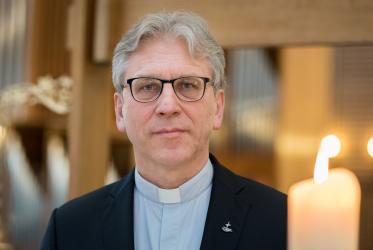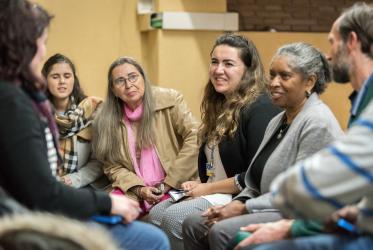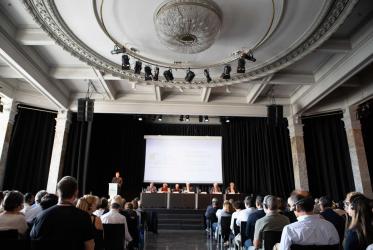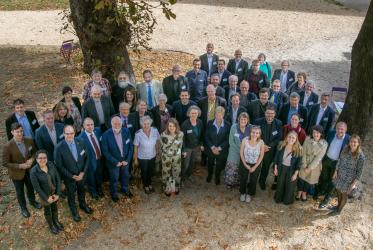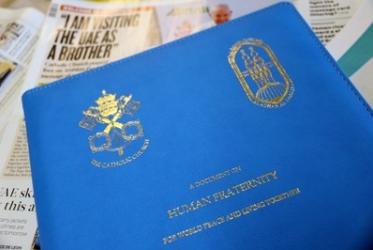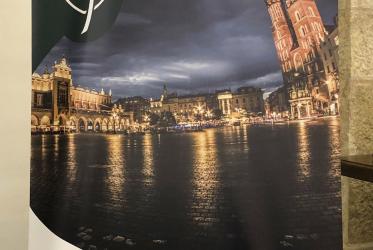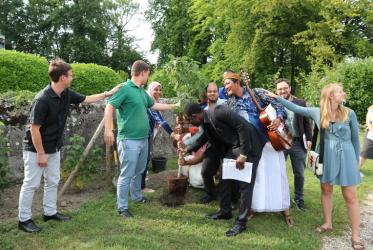Displaying 41 - 60 of 223
A visionary missionary heads home
25 March 2020
Archbishop Anastasios receives Klaus Hemmerle 2020 Prize
19 February 2020
WCC well-represented in Religions for Peace leadership
07 October 2019
Le COE bien représenté à la tête de «Religions pour la paix»
07 October 2019
Religions for Peace calls for "shared well-being”
26 August 2019
Religions for Peace assembly convenes in Lindau
19 August 2019
Bossey students explore the meaning of “belonging”
22 July 2019





